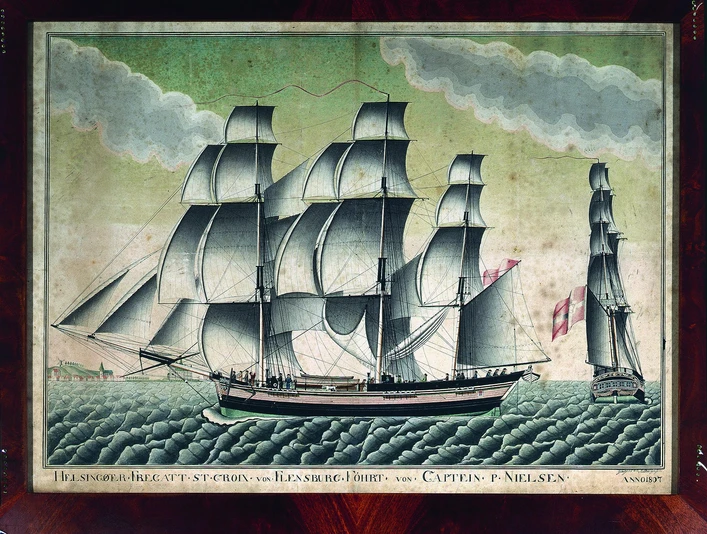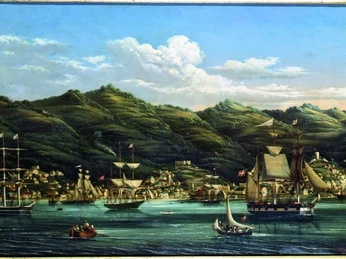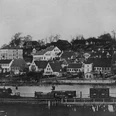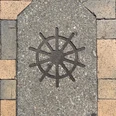Westindienspeicher (West India Warehouse)
The merchant's store at Große Straße 24 exemplifies the importance of the West Indies trade, which established Flensburg's fame as a sugar and rum town. In 1755, the NEPTUNUS was the first Flensburg ship to sail the Danish West Indies. Flensburg subsequently developed into a flourishing port and trading town. The merchants and shipowners made skilful use of the advantages that had accrued to them and to the town through its membership of the Kingdom of Denmark in previous centuries. The courtyards to the left and right of the long roads between Südermarkt and Nordertor were bustling with activity. Since the Middle Ages, merchants and tradesmen had acquired land here. They preferred the area facing the harbour for convenient loading and unloading of ships.
The Christiansen trading company was a leader in the West Indies trade for decades. The company's founder Andreas Christiansen (1743-1811) owned two trading yards, one here on the Große Straße and the other on the Holm, where he conducted his business as the owner of several sailing ships, a sugar refinery, and an oil mill. In 1789, he had a large five-storey building erected on the rear courtyard of the property on Grosse Strasse for the storage of colonial goods, the so-called West India Warehouse. After the last user of the warehouse, the rum company J.C. Schmidt, closed its doors, it was renovated in 1981 for flats and offices.
Good to know
Openings
Nearby









